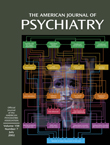Capacity to Provide Informed Consent for Participation in Schizophrenia and HIV Research
Abstract
OBJECTIVE: The degree to which people with psychiatric symptoms and cognitive dysfunction can provide informed consent to participate in research is a controversial issue. This study was designed to examine the capacity of subjects with schizophrenia and subjects with HIV to provide informed consent for research participation and to determine the relationships among cognitive dysfunction, psychiatric symptoms, and decisional capacity. METHOD: Twenty-five men and women with a DSM-IV diagnosis of schizophrenia and 25 men and women with HIV were recruited. The groups were compared in terms of neuropsychological functioning, psychiatric symptoms, and ability to provide informed consent to a hypothetical drug trial. RESULTS: Eighty percent of the subjects with schizophrenia and 96% of the HIV-positive subjects demonstrated adequate capacity to consent to the hypothetical drug trial, but subjects in the schizophrenia group had significantly lower scores on two of the four aspects of decisional capacity. For the subjects with schizophrenia, neuropsychological functioning and psychiatric symptoms (e.g., apathy and avolition), but not psychotic symptoms (e.g., hallucinations and delusions), were significantly associated with decisional capacity. CONCLUSIONS: The majority of subjects who are recruited and willing to participate in schizophrenia or HIV research will have adequate capacity to provide consent. Cognitive dysfunction and the symptoms shown to be associated with impaired decisional capacity are not unique to schizophrenia and may occur with many other forms of illness. These findings underscore the importance of considering how decisional capacity will be assessed in all types of research, regardless of the specific condition being studied.



